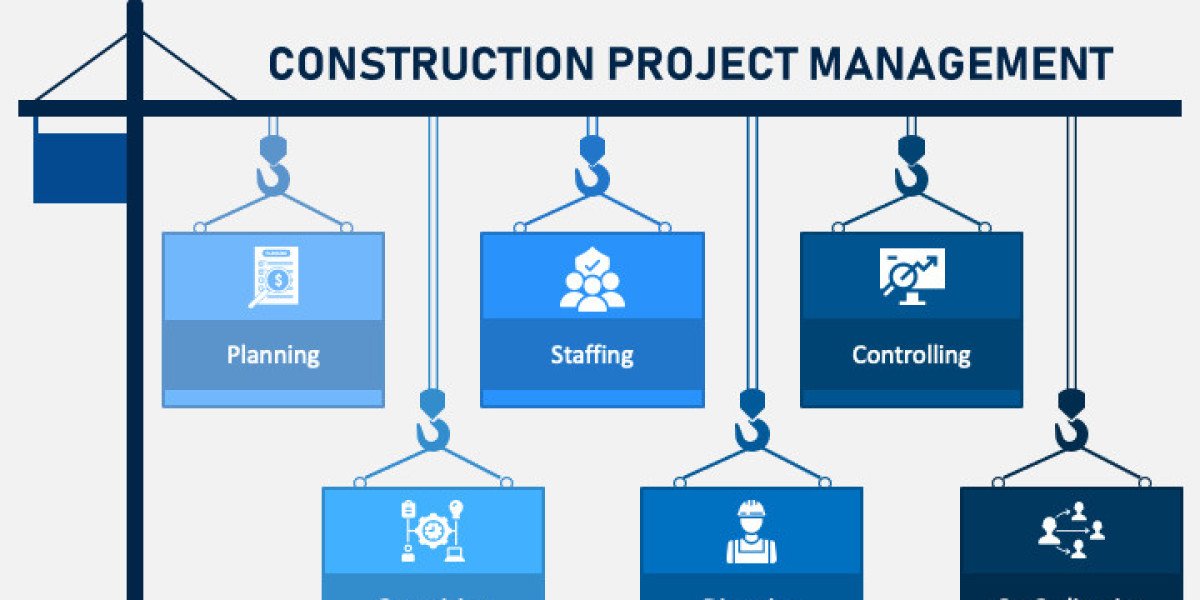Construction in Pakistan has long been characterized by manual workflows, paper-based records, and disjointed communication between site teams and project managers. But with the country's increasing investment in real estate, infrastructure, and urban development, traditional project management approaches are proving inefficient.
To stay competitive, firms are beginning to embrace Construction Project Management Software in Pakistan — a game-changer in the way construction projects are planned, monitored, and executed. These digital tools are no longer luxuries but critical assets for construction companies navigating the complexities of modern projects.
The Construction Landscape in Pakistan
Pakistan’s construction industry is a pillar of economic development, employing over 8% of the workforce and contributing approximately 2.5% to the national GDP. Major urban centers like Karachi, Lahore, and Islamabad are witnessing a surge in residential and commercial projects, while government-backed infrastructure initiatives like CPEC have added further momentum.
However, common challenges persist:
Chronic delays in project delivery.
Budget mismanagement and cost overruns.
Lack of visibility into on-site progress.
Fragmented communication across project stakeholders.
Regulatory compliance issues due to poor recordkeeping.
These issues result in significant financial losses and erode client trust. Construction Project Management Software offers a modern solution to these age-old problems.
What is Construction Project Management Software?
CPMS is a suite of tools designed to manage construction workflows from start to finish. It integrates functions like scheduling, budgeting, resource tracking, document control, and team communication in one centralized system. Users can access project data in real-time, helping to keep everyone—from contractors to clients—on the same page.
Whether it’s a housing project in Rawalpindi or a highway expansion in Balochistan, CPMS allows for data-driven decision-making and enhanced project control.
Key Features That Make CPMS Indispensable
1. Centralized Planning and Scheduling
Construction software allows managers to set timelines, assign responsibilities, and track progress visually using Gantt charts or Kanban boards. This helps anticipate bottlenecks and avoid schedule slippage.
2. Cost and Budget Management
Budget tracking tools let users set financial limits, monitor spending, and flag variances in real-time. This is especially important in Pakistan, where fluctuating material prices and labor rates can derail cost estimates.
3. Document and File Sharing
Contracts, drawings, permits, and inspection reports can be stored securely and shared instantly. This reduces the risk of lost paperwork and ensures compliance with regulatory bodies.
4. Mobile Access for On-Site Teams
Mobile-friendly platforms allow on-site workers to upload photos, fill out checklists, and log incidents without returning to the office—crucial for efficiency in geographically dispersed projects.
5. Real-Time Communication
Built-in messaging tools and automated notifications ensure that engineers, contractors, and supervisors are always in sync, reducing delays caused by miscommunication.
Software Platforms Gaining Ground in Pakistan
While global players dominate the market, local and regional software developers are beginning to cater specifically to the Pakistani market:
Procore: Widely used on large infrastructure projects, offering advanced integrations.
PlanRadar: Gaining traction for documentation and compliance tracking.
Buildertrend: Preferred by mid-sized firms for its user-friendly interface and CRM capabilities.
Scon (Pakistan-based): Offers localized project management tools with offline access.
Autodesk Construction Cloud: Popular for design-to-execution collaboration, especially in architectural firms.
Real-World Benefits for Pakistani Construction Firms
1. Faster Project Completion
Automation of routine tasks and efficient coordination shortens construction timelines, enabling companies to take on more projects annually.
2. Reduced Costs
By controlling wastage, preventing rework, and optimizing procurement, CPMS can significantly cut down overall project costs.
3. Higher Quality Assurance
Checklists, inspections, and real-time feedback improve construction quality and reduce post-completion defects.
4. Enhanced Transparency
Stakeholders, including investors and clients, gain access to regular reports and dashboards, promoting transparency and accountability.
5. Better Compliance and Audits
Digital records make it easier to comply with building codes, tax regulations, and safety audits, protecting firms from legal or financial penalties.
Challenges Unique to Pakistan
Despite clear advantages, widespread adoption of CPMS in Pakistan still faces roadblocks:
Digital Illiteracy: Many construction site workers are not comfortable using software or mobile apps.
Infrastructure Limitations: Internet access remains unreliable in remote or rural construction zones.
High Initial Cost: Licensing, training, and setup costs can be prohibitive for small firms.
Resistance to Change: Senior managers who have relied on traditional methods are often hesitant to adopt new systems.
Solutions and the Way Forward
For broader adoption across the Pakistani construction landscape, several strategies can help:
Tiered Pricing: Software providers should offer packages that cater to small, medium, and large construction firms.
Training Programs: Government agencies and trade bodies can facilitate workshops to train construction professionals in digital tools.
Localization: Software in Urdu and regional languages, with support for local metrics and compliance standards, can improve usability.
Hybrid Models: Offline-first or hybrid cloud systems ensure functionality even in low-connectivity environments.
Case in Point: A Local Contractor’s Experience
A mid-tier construction company in Faisalabad adopted a localized project management platform in 2023. Within 9 months:
Delays dropped by 22%.
Material wastage reduced by 15%.
Client satisfaction scores improved significantly, resulting in two new project referrals.
The company credits the software’s visual dashboards, mobile access, and cost tracking features for this performance boost.
The Future: Smart Construction Powered by Software
Looking ahead, the integration of emerging technologies such as AI, Machine Learning, and Building Information Modeling (BIM) with CPMS will further revolutionize how construction is managed in Pakistan.
AI can predict project risks, BIM can simulate project stages, and IoT devices can track equipment usage in real time. These innovations, when embedded into CPMS platforms, will make Pakistani construction firms more agile, data-driven, and globally competitive.
Conclusion
Construction Project Management Software is reshaping how buildings, roads, and infrastructure projects are delivered across Pakistan. From addressing inefficiencies to promoting innovation, CPMS is not just a digital tool—it’s a strategic asset for the future of construction.
As more firms realize the long-term gains, and as localized, affordable solutions continue to emerge, CPMS adoption in Pakistan is likely to accelerate. The construction firms that adapt early will be the ones leading the skyline of tomorrow.








